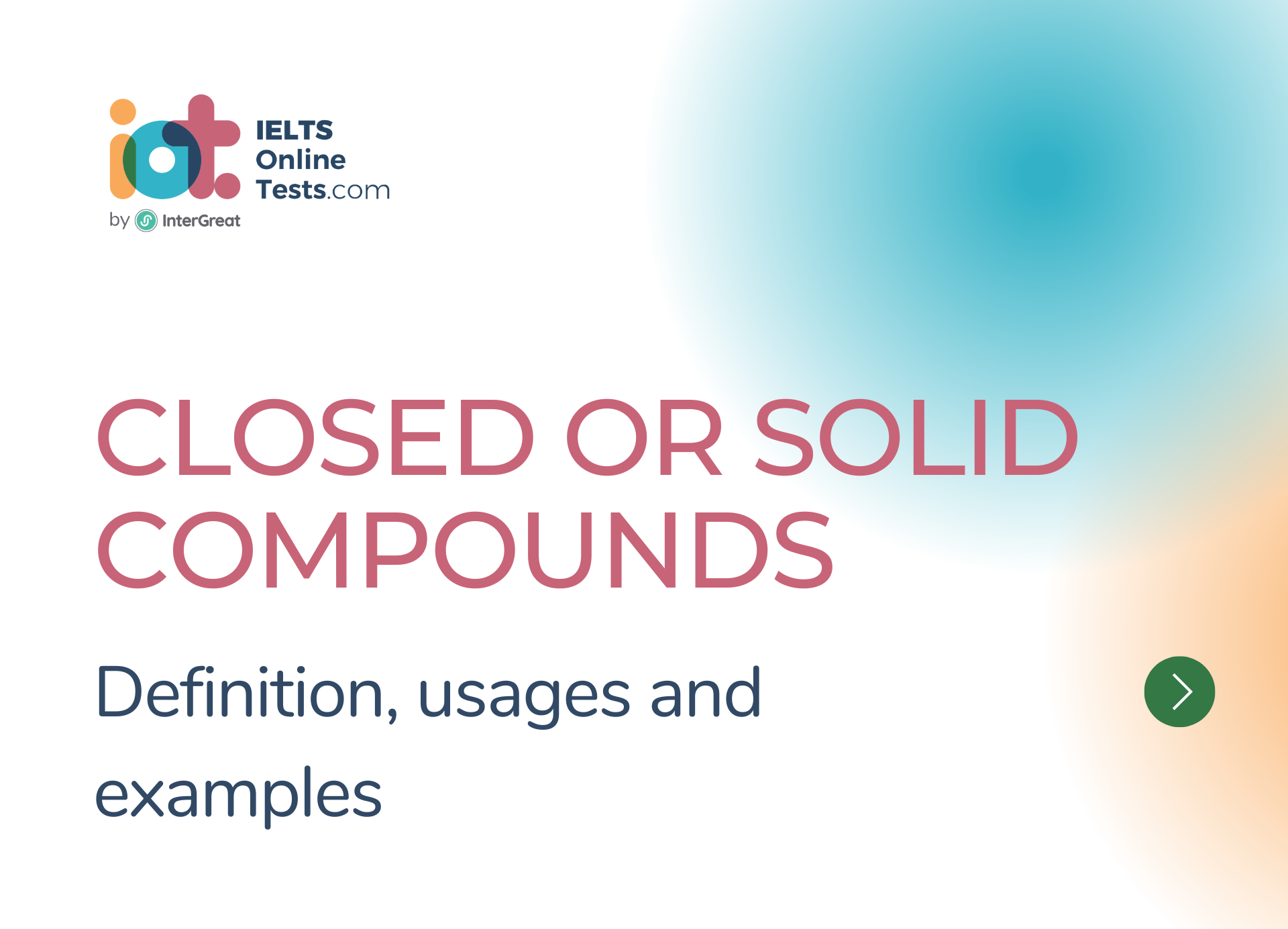
Closed or Solid Noun Compounds
Closed or solid compound nouns are a type of compound noun where two or more words are combined to form a single word without any spaces or hyphens. In closed compounds, the words are tightly joined together, creating a unified term.
Here are some important details about closed or solid compound nouns:
Formation:
Closed compound nouns are formed by combining two or more words together without any spaces or hyphens. The words are merged, creating a single word.
Examples:
- Keyboard:
- formed by combining "key" (the individual buttons on the keyboard) and "board" (a flat surface).
- Sunrise:
- formed by combining "sun" (the star around which the Earth revolves) and "rise" (the act of ascending or coming up).
- Football:
- formed by combining "foot" (the body part used to kick) and "ball" (a round object used in various sports).
Semantic Relationship:
In closed compounds, the words work together to create a new, specific meaning. The semantic relationship between the words can vary:
Noun + Noun: The first noun modifies or describes the second noun.
- Example:
- Football (a ball used in a specific sport played with the feet).
- Example:
Adjective + Noun: The adjective provides additional information about the noun.
- Example:
- Whiteboard (a type of board that can be written on with markers and then erased).
- Example:
Verb + Noun: The verb functions as a modifier for the noun.
- Example:
- Birthmark (a mark on the skin present from birth).
- Example:
Plural Formation:
For closed compound nouns, the plural is generally formed by adding the plural marker to the main or primary word of the compound:
- Example:
- Keyboards, sunrises, footballs.
Stress and Pronunciation:
In closed compounds, the stress is typically placed on the first syllable of the compound:
- Example:
- KEYboard,
- SUNrise,
- FOOTball.
Closed or solid compound nouns are common in English and are widely used to describe specific objects, concepts, or activities. Understanding their structure and meaning allows for effective communication, as they help convey precise information in a compact form.




